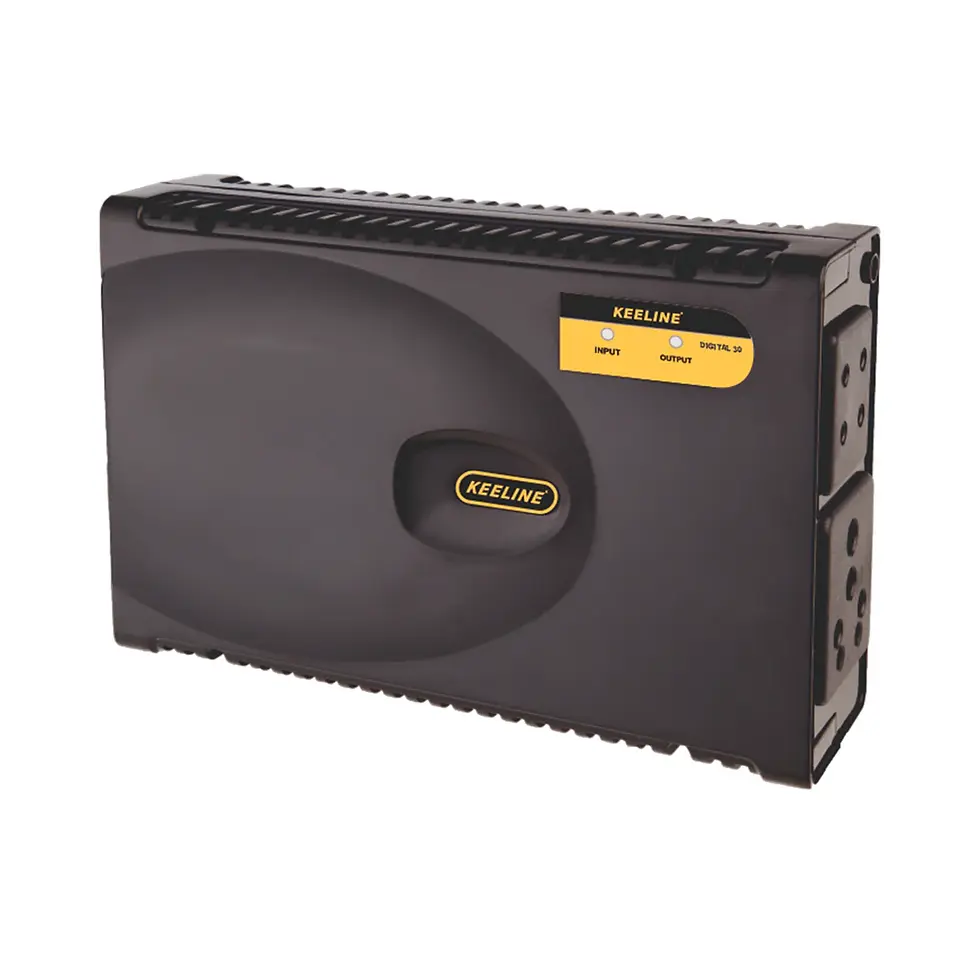Why Choosing the Right Stabilizer for Your AC Matters More Than You Think
- keeline india
- Apr 9
- 3 min read

In today’s world, where summer temperatures continue to rise and air conditioners have become a necessity in every home, ensuring their smooth performance is critical. Most people invest heavily in the best AC models, considering features like energy efficiency, cooling speed, and brand reputation. However, one essential component often gets overlooked — the stabilizer. Choosing the right stabilizer for your AC is not just a good idea; it’s a smart investment that protects your appliance, enhances its lifespan, and saves you money in the long run.
The Role of a Stabilizer
A voltage stabilizer is designed to manage power fluctuations by maintaining a stable output voltage. It shields your air conditioner from high and low voltage surges that can damage internal components such as compressors and circuit boards. These fluctuations are common in many parts of the country, especially during peak summer months or in areas with unreliable electricity supply.
When voltage drops below or rises above the safe operating range, the stabilizer acts as a barrier, ensuring that your AC receives the correct voltage consistently. This not only protects your appliance from sudden breakdowns but also improves its efficiency and overall performance.
Why Your AC Needs a Stabilizer
Many modern ACs come with built-in stabilizers, which often leads people to believe an external one isn’t necessary. While these inbuilt units can handle minor fluctuations, they may not provide adequate protection during severe voltage drops or spikes. An external stabilizer with a broader working range adds an extra layer of safety, especially in areas prone to frequent power issues.
Here’s why a dedicated stabilizer is worth considering:
Protects Your Investment: An air conditioner is a significant household investment. Sudden voltage surges can cause permanent damage, resulting in costly repairs or replacements. A stabilizer protects this investment by keeping voltage levels within the safe range.
Increases Lifespan: Consistent voltage input reduces strain on the AC’s compressor and internal electronics, which helps extend the life of your appliance. Over time, this translates to fewer repairs and a longer functional life.
Improves Performance: When your AC receives stable power, it runs more efficiently. Fluctuations can affect cooling performance, resulting in uneven temperatures or excessive power consumption. With proper voltage regulation, your AC delivers optimal cooling with less energy waste.
Reduces Maintenance Costs: Frequent power issues can cause ACs to malfunction. Stabilizers reduce the risk of electrical faults, leading to fewer service calls and reduced maintenance expenses.
Peace of Mind During Storms and Outages: During thunderstorms or blackouts, voltage levels can fluctuate wildly. A stabilizer ensures your AC is safeguarded even during unpredictable weather or grid failures.
Key Features to Look For
When selecting a stabilizer, it’s essential to understand the unique requirements of your AC. Factors such as tonnage, inverter vs. non-inverter technology, and local power conditions play a crucial role. Look for features like:
Wide voltage range (e.g., 130V – 280V)
Thermal overload protection
Time delay function
Digital display for voltage monitoring
Wall-mountable or floor-standing design, depending on your space
Investing in the best stabilizer for AC ensures your appliance is guarded against power-related damage while delivering consistent performance.
Conclusion
A stabilizer might not be the most glamorous part of your home appliance setup, but its importance cannot be overstated. With rising electricity demands and unstable grids, having the right voltage stabilizer for your AC can mean the difference between a cool, hassle-free summer and expensive repair bills.
Don’t let an unexpected voltage spike ruin your expensive cooling unit. Choosing the best stabilizer for AC is a small step that pays off in reliability, efficiency, and peace of mind. When protecting your comfort and your investment, it’s always better to be safe than sorry.


Comments